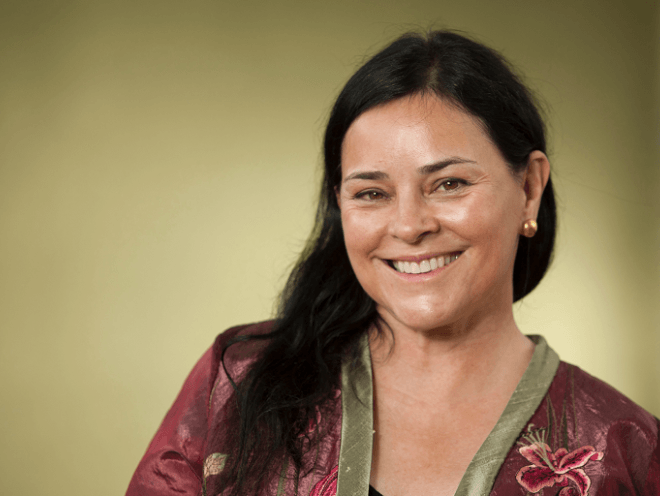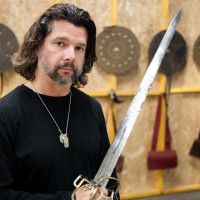On Facebook, Diana shared with us one word that summarizes the theme for each of her Outlander (the big books) novels: love, marriage, identity, family, community, loyalty, nexus, forgiveness, and…. By her account, there will be two more theme words, yet to come, which will represent thousands of hours of work and lifetimes of experiences channeled through and crafted by this amazing person and author. I feel about this like I feel about my little family – I know this time is finite, and precious; I don’t want to rush it, but to savour the beautiful moments between now and the knowing of that last word…
Diana Gabaldon
March 14 at 5:00am ·
ONE WORD SPEAKS VOLUMES (themes of the novels)
“Books don’t write themselves, as anyone who’s ever tried to write one can tell you. And if there is a secret to writing anything– fiction, non-fiction, TV scripts, greeting cards, poetry or epitaphs–it’s this: The only way to write is one word at a time. This is either reassuring or Absolutely Horrifying, depending how to you look at it, but it’s the truth.
But, as anyone who writes books can also tell you, books do have a mind and a voice of their own. And a successful book is one that talks to the reader.
The interesting thing is that they talk to the writer, too. (Some writers suffer from the notion that they are in charge. Maybe they know something I don’t .)
If you’ve ever been exposed to High School English classes, you’ve doubtless been forced to discern and explicate the theme of a novel. This is ungodly boring, but possibly helpful to those who’ve never heard of a theme before. (Frankly, my opinion is that if you read a lot, you absorb this notion by observation, and if you don’t like to read in the first place, being forced to look for themes in books you don’t care about to start with is not likely to change your aversion to the practice.)
Still, the general notion of a theme is sometimes useful to a writer, in that it influences both the content and the organization of your story. Not always—or even often—in a deliberately conscious way, but it’s there. And once you’ve assembled most of a book, you really ought to be able to tell someone who asks what the theme is.
I didn’t really think about the themes of my books for some years, but some intelligent NPR interviewer asked me one day whether I could sum up the book we were talking about in a single sentence—and I realized that in fact, I could summarize the theme of each book in a single word.
These are as follows:
Outlander – Love
While my books are often referred to (by people at a loss as to what to call them) as romance novels, they aren’t. However, Outlander is in fact the only one that has the necessary structure to even pass as a romance novel. I.e., it is a courtship story; its central mechanism concerns the coming together of two people in a (theoretically) permanent pair-bond. Beyond that, though, it explores the nature of love on a number of levels and in a variety of contexts.
We have Claire’s conflict over (truly) loving two men. We have Jamie’s love for his father, his sister, and his home, and Murtagh’s love for his godson. We have the deeply conflicted love between the brothers MacKenzie. We have the love of the clansmen for each other, their laird and their home. We have the very complicated emotions of Captain Jack Randall—though whether any of these constitutes love, or merely obsession, is a matter for the reader to decide. And we have Divine Love, which Claire more or less stumbles into as an act of desperation. But almost every relationship in the book rests on love, and the entire story is a testament to the power of love.
Dragonfly in Amber – Marriage
This book deals primarily with the development of a specific marriage—Jamie’s and Claire’s—but along the way, looks at quite a few other relationships and arrangements that explore the concept. We have the arranged marriage of Mary Hawkins and the elderly, warty Comte de Vigny. We have the loveless but pragmatic marriages of class and convenience seen in the French Court, and the casual, selfish affairs that contrast so strongly with the sense of commitment and self-sacrifice that lies at the heart of a good marriage. Later we see the doomed love between Mary and Alex Randall—and the pragmatic marriage between her and Jack Randall (based on Jack’s love for his brother, rather than for Mary). We see the peace of a long-term, deeply committed marriage between Jenny and Ian at Lallybroch—and appreciate the various threats there are to these social bonds, and how people sustain a marriage—or don’t.
Voyager – Identity
Voyager has a lot of adventure, changing of times and places, seeking of destiny, and so on—but the underlying theme is that of a person’s search for identity, and how they define themselves, in their own eyes, or those of another, or those of society at large. By marriage, by career, by calling—or by recognition of one’s own essential being. You see this worked out most noticeably (of course) in Claire’s and Jamie’s story, first as she seeks the husband she’s lost and longed for, and then as they look for safe landing and a place in which they can survive together.
The continuing metaphor lies in their names: Jamie has five to choose from, plus a title, plus various nicknames, and he lives under an assortment of noms de guerre (often quite literally de guerre) throughout the book, in response to his changing roles and who’s after him at the moment. Claire, of course, has gone from Beauchamp to Randall to Fraser, and is now once again about to be Claire Fraser—or is it Mrs. Malcolm? Or perhaps Madame Etienne de Provac? (Symbolizing the linking of her fate with Jamie’s, aye?) As Jamie tells Claire mid-book, “…here in the dark, alone with you…I have no name”.
The two of them adopt, discard and adapt roles as they go from an Edinburgh brothel to Lallybroch to the Caribbean and at last are cast ashore in America by a hurricane , where—stripped of everything except each other, Jamie finally reclaims and restates his identity when he introduces himself to a rescuer: “My name is James Fraser. And this is Claire—my wife.”
Drums of Autumn – Family
If Dragonfly in Amber deals with the establishment and growth of a marriage, Drums does the same with the concept of family and its importance in a person’s life. One of the major notions—developed throughout the books—is that a family doesn’t consist only of people who share DNA, nor that a family ceases to be important if the members of it are separated—or dead. Jamie and Claire’s family as they settle in North Carolina consists of Fergus, Marsali, their son Germain, and Jamie’s nephew Ian—as well as Brianna, the daughter Jamie has never seen.
As for that daughter, her shock at learning the truth of her parentage leads her to find her family and risk everything to save them, while Roger MacKenzie Wakefield (born a MacKenzie, but adopted by his great-uncle) risks everything for her sake—and becomes her family, as well, along with her child, Jeremiah (who may or may not be Roger’s, but whom Roger claims firmly as his own) .
As Brianna writes in her note to Roger, enclosed with her family silver, photos and memorabilia, [“Everybody needs a history. This is mine…”]
The Fiery Cross – Community
The Fiery Cross continues the “building” sense of the books, from courtship to established marriage, to family and now to the formation of a community, as Jamie reclaims his original destiny as laird and leader, supporter and protector of a community. We saw him do this (briefly) at Lallybroch, and then during the years after Culloden, when he led the prisoners at Ardsmuir and kept them (mostly) sane and alive by forging them into a community. Jamie has always been defined (to himself, as well as to the reader) by his strong sense of responsibility, and here we see it in full play, as he gathers tenants to his land at Fraser’s Ridge, with the help (and occasional hair-raising hindrance) of the time-travelers in his family.
As with any worthwhile story, the process of self-definition of a protagonist (whether that’s a single person or a group) is a process both of discovery and of conflict. Stumbling blocks, opposition and danger are the tools that nature uses to carve a striking personality from the native rock. And thus we see not only the formation of the community of Fraser’s Ridge (a parallel and microcosm of the emerging America), but the individual struggles of Jamie, Claire, Brianna, Roger and others, to fit into their changing environment and preserve their own identities and discover their callings in the process.
A Breath of Snow and Ashes – Loyalty
I’m tempted to say that the one-word theme of this book is “survival,” but the means by which so many people survive the vicissitudes of a world spinning rapidly out of control is really a better theme, I think. In this instance, we explore the fierce loyalty of Claire and Jamie to each other and to their family, but beyond loyalty to people, loyalty to ideals and ideas is a huge thing at this time in the history of America, and the conflict of those loyalties is paradoxically both the cause of social fracture and the means of survival when the world is coming apart at the seams.
We see other forms of loyalty at work—the loyalty of greed and self-protection, among the Brown gang and Hodgepile’s band of marauders, the loyalty to tradition and leaders among the Cherokee, the loyalty to King, country, and regiment shown by John Grey—and the loyalty of friendship, as we see between Lord John and Jamie.
And ultimately, we see the loyalty and love of parents, who will make any sacrifice for the sake of their children and the future.
An Echo in the Bone – Nexus
The icon on the cover of the US edition of this book is a caltrop—a military weapon dating back to Roman times . The icon on the UK edition of the book is a very beautiful skeletal leaf—showing the superiority of the Orion art department to my own artistic instincts, but embodying the same underlying concept: the complex and fragile linkages between people, times, and circumstance.
The book follows four major storylines, which connect in major and minor ways, and—depending on which cover image you prefer—display the importance and resilience of such connections in time of wars and personal conflicts, or show the underlying veins of nurture and sustenance between people that keep them whole in spite of the stresses of passing time.
As with A Breath of Snow and Ashes, I considered an alternate one-word theme—in this case, “Mortality.” Not death, as such, but a realization of the finite nature of life, and what this does to people. That was a much harder concept to put on a cover, though.
Written in My Own Heart’s Blood –
If Echo’s word was “nexus,” most acute readers are probably expecting MOBY’s to be “spaghetti”—or, possibly, “octopus” It isn’t, though; it’s “forgiveness” – both the giving of that balm, and the refusal to forgive, and what giving or refusal does to both giver and recipient in either case.
We see this concept in operation among the major characters—particularly with regard to William’s response to discovering his true paternity, and with regard to Claire’s efforts to deal with meeting the man who raped her, and her response to what Jamie does about it. But we also see it in the lesser passages dealing with incidental characters: Mrs. Bradshaw and the slave Sophronia, for example. Mrs. Bradshaw shows a courageous determination to help the girl (thus forgiving her for what might have been seen as complicity in her husband’s infidelity, by a lesser woman), despite her inability (and who could wonder at it?) to forgive her husband, and the apparent internal struggle the situation costs her.
Rachel forgives Ian instantly upon his confession that he was married before, and his admitting the fear that he might not give her children. Jamie forgives Claire (and, reluctantly, Lord John) for having slept with each other while thinking him dead—but can’t bring himself to forgive Lord John for baldly acknowledging his own desire for Jamie.
Claire instantly forgives Jenny, the sister-in-law she once loved deeply. Jenny emphatically doesn’t forgive Hal, the commander of the men who hurt her family and contributed to her husband’s death—but has words of counsel and support for Claire as to how she might deal with her realization that the man who raped her is alive, sharing her daughter’s experience.
Buck MacKenzie can’t forgive himself for the ways in which he failed his wife. Roger explicitly forgives Buck for his role in getting Roger hanged—but demonstrates the boomerang effect of forgiveness, in which the sense of injury returns and must be dealt with afresh.
Fanny forgives William and Jamie for not being able to save Jane—but you can plainly see that they don’t forgive themselves, and will live with the effects of their failure for some time.
“Spaghetti” is probably the right term, really….”
The journey continues… So looking so forward the next book ~ Go Tell The Bees That I Am Gone… Anyone have a guess about its theme?

Source: Diana Gabaldon Facebook Page






I think the next book will be about loss and the sweetness of life, the choices made and making peace with the results.
I’d say that’s a very good surmise Cy – well put. Bees – honey- sweetness, and I’m gone certainly connotes loss. can’t wait ?
Thank you Diana for your beautiful stories…we can’t wait either
complete
The only word that comes to my mind, with the words, “ the next book, “ is Joy.
Joy that there Is a next book! Thank-you, thank-you, and, thank-you, again!!!!!
Thank you for sharing this and for some unknown reason has made me tear up.
I think the next book will deal with CONSEQUENCES of choices made by each character along his/her journey.
The theme for the Bees, possibly Peace, if it means someone has passed on perhaps they are now at peace? I would hope when I die I might be ‘at peace’.
Surrender
How about fortitude? The characters have come a long way, through many difficult, often heartbreaking obstacles. They are strong.
“Honesty” popped in my head, but I don’t know why.
Bees? Suggests to me that the 9th book would be the story of queens leaving not necessarily passing. Which could suggest that the final book #10 would tidy up family decisions “Bree and fam” wether to stay with Jamie? Hmm I’m soo hooked, and loving every minute! Thanks DG ??
That’s is the most succinct summary of those amazing books! Hope there’s plenty of Bees and Honey in the next book!
I can hear Diana’s voice, when reading her words, does that even make sense? I enjoy everything she writes. Outlander Fan.
What a journey Diana Gabaldon’s books of “Outlander” have taken us. Each book in the Outlander series Book 1 – 8 is a masterpiece and treasure in their own right. A heartfelt thank you to Diana Gabaldon for touching our hearts. I must admit though I am somewhat mystified by the title “Go Tell the Bees That I am Gone” – what is the exact meaning behind it? I have read the first 4 books over and over and I still see parts that I have missed before. I love her books! A true genius. Thank you for sharing the compilations above and for the stellar books.
So totally agree with all you said
Thank you for the book summaries above! A treasure to keep. Long live Jamie and Claire – two very strong people.
In ancient times and coutries, when the bee-keeper passed away, the beehives had yo be covered with a blanket or a piece of clothe for mourning. Maybe the word is “mourning”?
Will it be Claire or Jamie who dies? I tear up just thinking of the possibility that one of them could be gone
I won’t let myself think of either of them dying or being apart. They are so part of each other – as Jamie has said in “Drums of Autumn” Chapter 16 title “The First Law of Thermodynamics” when Claire was afraid that Jamie might leave her to go to Scotland to get more settlers and he would die there (due to the headstone) – he said to her “You are my courage as I am your conscience – You are my heart as I am your compassion. We neither of us are whole alone, do you not know that Sassenach?” I couldn’t bear the thought of them being without the other.
I love this Diane – you guys are all so interesting, I need to interview you next! ?
I am inclined to agree with Diane (mourning) . I think Go tell the Bees…will be about loss.
All the people in the “Outlander” series have gone through so much – I looking forward to Diana’s next book “Go tell the Bees that I am gone” – I know it will be amazing and will be read over and over, just as we have all the 8 books before.
Could the next book’s theme be Acceptance? Looking forward to reading what happens next in the lives of my favorite characters!
Full Circle – maybe the last one needs 2 words b
Forgiveness or Reconciliation
9 – Fate/Destiny
10 – Peace/Death
I think ^^
Hmmm, interesting. Is this a guess, or did she spill the beans and I missed it?!